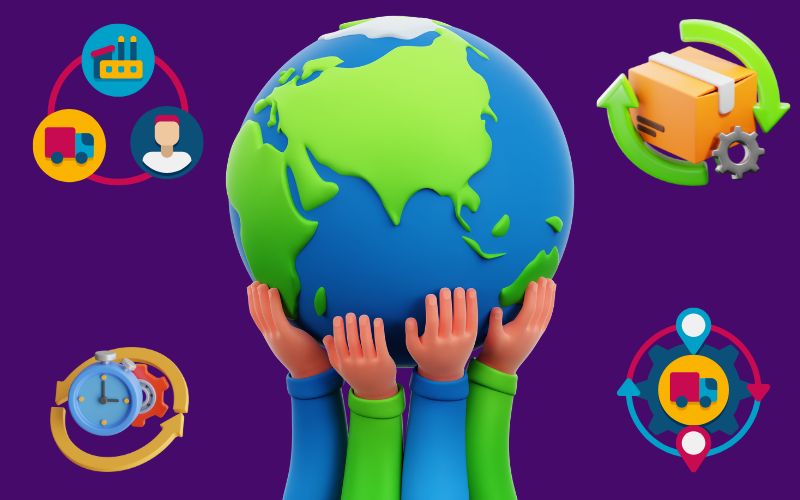“Modern manufacturing demands digital integration, automation, real-time logistics, and sustainable practices. Cost efficiency is no longer the sole draw—global businesses now seek manufacturing partners who can deliver quality, consistency, and compliance across diverse markets.” Yeshab Giri, Chief Commercial Officer, Professional Talent Solutions, Randstad India, a talent company
In a world shaken by volatile geopolitics and economic realignments, the call for resilient and trusted supply chains has never been louder. The recent escalation of trade tensions between the United States and China punctuated by sweeping tariff hikes has compelled global companies to rethink their sourcing and manufacturing strategies. As countries seek to de-risk from concentrated supply dependencies, India stands at a pivotal inflection point.
With a large working-age population, expanding infrastructure, and progressive policy support, India is poised to transition from being the world’s back-office to becoming a core player in global manufacturing and supply chains. But the real differentiator? Its people.
A Workforce Transformation in Motion
As India aspires to enhance its role in global supply chains, the demand for a skilled manufacturing workforce becomes paramount. According to the Economic Survey, the country needs to generate approximately 7.85 million new skilled jobs annually until 2030 to meet its developmental goals.
Randstad India’s Talent Insights Report 2024 reveals that, in the manufacturing sector, production managers are currently the most in-demand professionals across all experience levels—junior (26.13%), middle (34.75%), and senior (29.55%). Supply chain and logistics professionals closely follow, especially at junior (17.94%) and mid-management levels (14.71%).
Historically, India has leaned on its demographic dividend. But in today’s competitive global landscape, the focus is shifting from manpower to mind power—from filling jobs to building future-ready capabilities in quality, compliance, and innovation. The image of traditional factory floors is being rapidly replaced. Modern manufacturing demands digital integration, automation, real-time logistics, and sustainable practices. Cost efficiency is no longer the sole draw—global businesses now seek manufacturing partners who can deliver quality, consistency, and compliance across diverse markets.
“The National Manufacturing Mission, launched in the 2025 Union Budget, aims to embed India deeper into global supply networks while creating employment opportunities.”
Bridging the Skills Gap
Recognizing this shift, India is taking bold steps to address its skill gaps. The National Manufacturing Mission, launched in the 2025 Union Budget, aims to embed India deeper into global supply networks while creating employment opportunities. Complementing this is a centrally sponsored skilling scheme targeting 20 lakh youth over five years. This initiative includes upgrading 1,000 Industrial Training Institutes (ITIs) through a hub-and-spoke model, aligned with industry demands and emerging technology areas.
What the New Supply Chain Talent Looks Like
As India moves up the value chain, the nature of hiring is undergoing a fundamental shift. Companies are actively seeking talent that can support advanced manufacturing, drive efficiency, and ensure compliance with global standards. Key emerging roles include:
- Automation and Robotics Technicians for smart manufacturing systems
- Digital Supply Chain Analysts using predictive analytics for inventory and routing
- Sustainability and ESG Professionals to lead decarbonisation efforts
- Trade Compliance Experts well-versed in export norms, FTAs, and cross-border regulations
- Logistics and Warehouse Specialists trained in real-time delivery management
This evolving talent profile is not limited to engineering roles alone. Soft skills like critical thinking, cross-cultural communication, and adaptability are increasingly valued in a world where global supply chains are interconnected yet interdependent.
Building the Talent India Needs
To bridge the gap between current capabilities and global expectations, India is transforming the way we skill and develop workforce. Across the country, new models of training are being adopted to prepare a workforce that is productive and competitive on the world stage. Talent companies are playing a pivotal role in this transformation by identifying skill gaps, sourcing specialized talent, and aligning candidates with industry-specific demands.
Industry-Led Upskilling: Manufacturing firms are reimagining talent development by establishing internal training academies, offering courses in lean manufacturing, Six Sigma, IoT (Internet of Things)-enabled production, and quality certifications aligned with ISO and global standards. These programs aim to reduce skill mismatches and accelerate the readiness of shop-floor and mid-management talent.
Vocational-Technical Integration: Technical institutes are upgrading curricula to include AI, robotics, and Industry 4.0 concepts. Talent companies like Randstad are actively collaborating with such institutions to align training with evolving job roles, ensuring talent pipelines remain future-ready.
Public-Private Partnerships: Government schemes like Skill India and the Production Linked Incentive (PLI) program are amplifying workforce development by incentivizing companies to invest in talent alongside technology. Training programs under these schemes are tailored to sector-specific needs—from electronics to textiles to green energy. Recruitment experts often act as facilitators in these ecosystems, connecting program beneficiaries to relevant employers and advising firms on compliance, diversity, and long-term workforce planning.
Digital Learning Ecosystems: Online learning platforms and blended training modules are expanding the reach of advanced manufacturing education to Tier 2 and Tier 3 cities. This democratization of skilling ensures that the benefits of India’s manufacturing rise are geographically inclusive.
“India’s manufacturing renaissance is no longer just about cost arbitrage—it’s about trust, talent, and transformation. The global opportunity lies not just in making for the world, but in shaping how the world makes and moves from factory to final delivery.”
Talent Retention: The Next Frontier
As the demand for skilled manufacturing talent grows, retaining top talent is becoming a strategic imperative. Indian talent is increasingly discerning, not only about compensation, but also about career progression, purpose, and workplace culture. With respect to this, recruitment agencies are becoming long-term workforce partners, helping organizations move beyond transactional hiring to focus on retention strategies.
Forward-looking manufacturers are investing in:
- Clear career pathways with cross-functional learning and leadership tracks
- Mentorship programs to transfer knowledge and instill a culture of continuous improvement
- Workplace flexibility and well-being support to enhance employee satisfaction
- Diversity initiatives, particularly to attract and retain women in shop-floor and engineering roles
Talent companies are now workforce partners helping businesses go beyond transactional hiring to build long-term employee engagement strategies.
From ‘Make in India’ to ‘Lead with India’
India’s manufacturing renaissance is no longer just about cost arbitrage—it’s about trust, talent, and transformation. The global opportunity lies not just in making for the world, but in shaping how the world makes and moves from factory to final delivery.
But this leadership will be built on more than just infrastructure. It will rest on a workforce that’s globally fluent, tech-enabled, and future-ready. Fortunately, India already has the essential ingredients—demographics, determination, and direction.

The author is Yeshab Giri, Chief Commercial Officer, Professional Talent Solutions, Randstad India, a talent company

